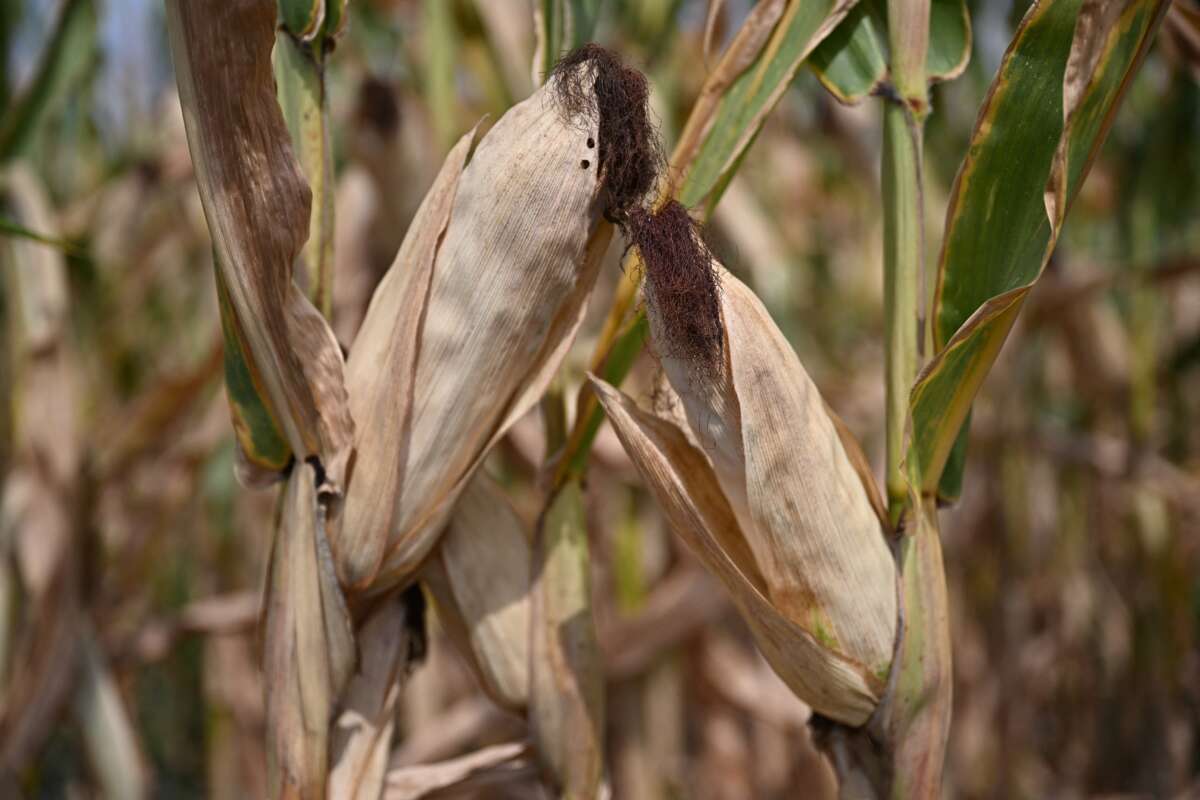One in 11 people worldwide went hungry last year, while one in three struggled to afford a healthy diet. These numbers underscore the fact that governments not only have little shot at achieving a goal, set in 2015, of eradicating hunger, but progress toward expanding food access is backsliding.
The data, included in a United Nations report released Wednesday, also reveals something surprising: As global crises continue to deepen, issues like hunger, food insecurity, and malnutrition no longer stand alone as isolated benchmarks of public health. In the eyes of the intergovernmental organizations and humanitarian institutions tracking these challenges, access to food is increasingly entangled with the impacts of a warming world.
“The agrifood system is working under risk and uncertainties, and these risks and uncertainties are being accelerated because of climate [change] and the frequency of climate events,” Máximo Torero Cullen, chief economist of the U.N.’s Food and Agriculture Organization, or FAO, said in a briefing. It is a “problem that will continue to increase,” he said, adding that the mounting effects of warming on global food systems create a human rights issue.
Torero calls the crisis “an unacceptable situation that we cannot afford, both in terms of our society, in terms of our moral beliefs, but also in terms of our economic returns.”
Of the 733 million or so people who went hungry last year, there were roughly 152 million more facing chronic undernourishment than were recorded in 2019. (All told, around 2.8 billion people could not afford a healthy diet.) This is comparable to what was seen in 2008 and 2009, a period widely considered the last major global food crisis, and effectively sets the goal of equitable food access back 15 years. This insecurity remains most acute in low-income nations, where 71.5 percent of residents struggled to buy enough nutritious food — compared to just 6.3 percent in wealthy countries.
Climate change is second only to conflict in having the greatest impact on global hunger, food insecurity, and malnutrition, according to the FAO. That’s because planetary warming does more than disrupt food production and supply chains through extreme weather events like droughts. It promotes the spread of diseases and pests, which affects livestock and crop yields. And it increasingly causes people to migrate as they flee areas ravaged by rising seas and devastating storms, which, in turn, can fuel conflict that then drives more migration in a vicious cycle.
“What happens if we don’t act, and we don’t respond?” said Torero. “You have more migration … it will empower more conflicts, because people in hunger have a higher probability to be in conflict, because they need to survive. And that will trigger also a bigger frequency of conflicts.”
Earlier this year, the African countries of Zambia and Zimbabwe declared a state of disaster because of an ongoing drought. Mercy Lung’aho, a food research scientist at the International Institute of Tropical Agriculture, said she witnessed long lines of people waiting to buy food, with quotas on how much they could buy. “Imagine not being able to know when, or if, you will eat. That’s the impact of climate change,” said Lung’aho.
Although governments, nonprofits, and other organizations spend vast sums each year to solve these problems, no one can offer anything more than inconsistent estimates of just how much is spent or what impact it is having. One reason for that, the U.N. report notes, is because there is little clarity into how this money is used, or even how these funding strategies are defined. (That also is true of multinational funding pledges to address these issues.) The authors of the report call for adopting a universal definition of financing for food security and nutrition that includes public and private resources aimed at not just eradicating hunger, but everything from strengthening agrifood systems to mitigating drivers like climate shocks.
As it stands, the world is assuredly not on track to reach all seven global nutrition targets governments set for 2030 under the Sustainable Development Goals they adopted in 2015. But experts on the issue have long argued that such measures have always been more naive than realistic, with “over-ambitious and impossible” targets that include the eradication of hunger and malnutrition for all people, and doubling the agricultural productivity and income of small-scale producers, among other goals.
Nemat Hajeebhoy is the chief of nutrition for UNICEF Nigeria, which has the second-largest population of malnourished children in the world. Unless governments, NGOs, and the private sector come together to address the underlying causes of hunger, food insecurity, and malnutrition, she said, vulnerable women and children worldwide will bear the brunt of that inaction. “What keeps me up at night is the numbers I’m seeing,” said Hajeebhoy. “As human beings, we have to eat to live. And if we cannot eat, then the consequence is sickness and death.”
Our most important fundraising appeal of the year
December is the most critical time of year for Truthout, because our nonprofit news is funded almost entirely by individual donations from readers like you. So before you navigate away, we ask that you take just a second to support Truthout with a tax-deductible donation.
This year is a little different. We are up against a far-reaching, wide-scale attack on press freedom coming from the Trump administration. 2025 was a year of frightening censorship, news industry corporate consolidation, and worsening financial conditions for progressive nonprofits across the board.
We can only resist Trump’s agenda by cultivating a strong base of support. The right-wing mediasphere is funded comfortably by billionaire owners and venture capitalist philanthropists. At Truthout, we have you.
We’ve set an ambitious target for our year-end campaign — a goal of $250,000 to keep up our fight against authoritarianism in 2026. Please take a meaningful action in this fight: make a one-time or monthly donation to Truthout before December 31. If you have the means, please dig deep.
